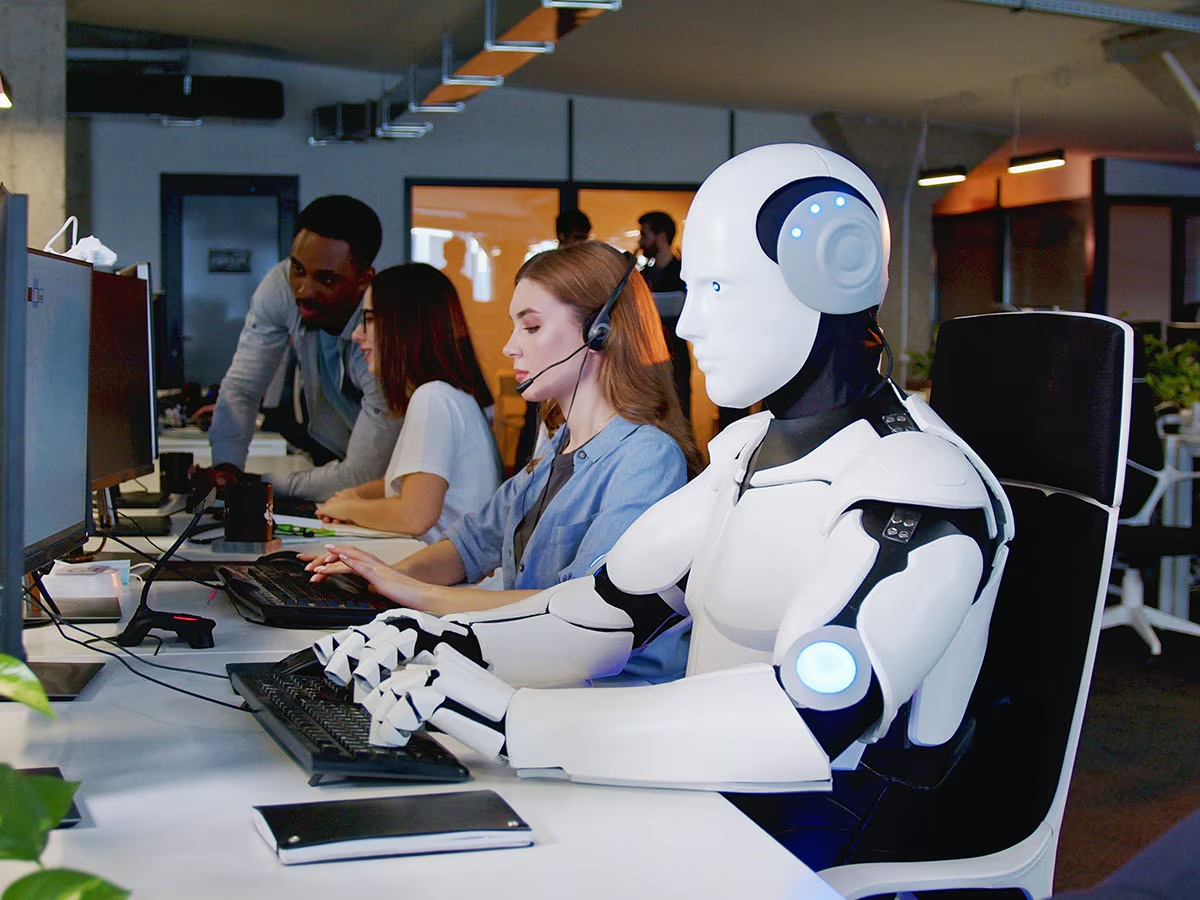As we delve deeper into the impact of AI on the workplace, it becomes clear that this technology is not just a futuristic concept but a reality that is already transforming various sectors. From automating mundane tasks to enhancing decision-making processes, AI is reshaping how we approach work. Below, we'll explore some of the significant ways AI is changing the way we work, providing insights backed by data and real-world examples.
Automation of Routine Tasks
One of the most significant contributions of AI in the workplace is the automation of routine tasks. This includes everything from data entry to scheduling meetings. By automating these repetitive tasks, employees can focus on more strategic activities that require human creativity and problem-solving skills.
According to a recent study, over 60% of employees believe that AI tools have helped them save time on mundane tasks, allowing them to dedicate more time to impactful projects. This shift not only enhances productivity but also boosts employee morale, as individuals feel more engaged in their roles.
Enhanced Decision-Making
AI algorithms can analyze vast amounts of data swiftly and accurately, providing insights that can significantly improve decision-making processes. Businesses are leveraging AI tools to analyze market trends, customer behaviors, and operational efficiencies.
For instance, AI-driven analytics platforms can provide real-time insights into sales performance, enabling managers to make informed decisions quickly. This capability is particularly beneficial in fast-paced industries where timely decisions can lead to a competitive advantage.
Improved Customer Interactions
AI is also revolutionizing customer service. Chatbots and virtual assistants are now commonplace, providing 24/7 support and enhancing customer experiences. These AI tools can handle inquiries, resolve issues, and even assist with purchases, significantly reducing response times.
Statistics reveal that businesses using AI-driven chatbots have seen a 30% increase in customer satisfaction ratings. This improvement fosters loyalty and can lead to increased sales, demonstrating the tangible benefits of integrating AI into customer interactions.
Personalized Learning and Development
In the realm of employee training and development, AI is creating personalized learning experiences. AI systems can assess individual learning styles and progress, tailoring training programs to meet specific needs. This personalized approach enhances the effectiveness of training, allowing employees to acquire new skills more efficiently.
According to a survey, companies using AI for training reported a 50% increase in employee retention rates. When employees feel supported in their growth and development, they are more likely to stay with the company long-term.
Data-Driven Recruitment
The recruitment process has also benefited from AI advancements. AI tools can streamline the hiring process by automating resume screening, identifying the best candidates based on specific criteria, and even conducting initial interviews through chatbots. This not only speeds up the hiring process but also reduces bias in candidate selection.
A study found that companies utilizing AI in recruitment saw a 40% reduction in the time taken to fill positions. By focusing on the most qualified candidates, organizations can make better hiring decisions that align with their goals.
Chart: AI's Impact on Workplace Efficiency
| AI Application | Efficiency Improvement (%) |
|---|---|
| Routine Task Automation | 60% |
| Decision-Making Insights | 50% |
| Customer Satisfaction via Chatbots | 30% |
| Training Retention Rates | 50% |
| Recruitment Time Reduction | 40% |
Challenges and Considerations
While the benefits of AI in the workplace are significant, there are also challenges to consider. Concerns about job displacement, data privacy, and the ethical use of AI are prevalent. Organizations must address these challenges proactively by implementing responsible AI practices and providing retraining opportunities for employees.
Engaging in open dialogue about the role of AI in the workplace can help alleviate fears and ensure that employees feel secure in their positions. Moreover, companies should focus on augmenting human capabilities rather than replacing them, fostering a collaborative environment where humans and AI work together effectively.
The Future of Work with AI
As we look to the future, the integration of AI into the workplace will only continue to grow. Companies that embrace this technology will likely gain a competitive edge, driving innovation and efficiency in their operations. The key lies in leveraging AI to empower employees, enhance productivity, and create a more dynamic workplace.
In conclusion, the impact of AI on the workplace is profound and multifaceted. By embracing these changes, organizations can not only improve their operational efficiency but also create a more engaged and satisfied workforce. As AI technology continues to evolve, so too will its role in shaping the future of work.

















